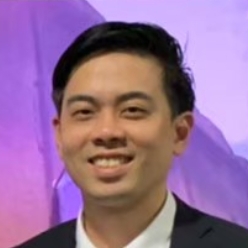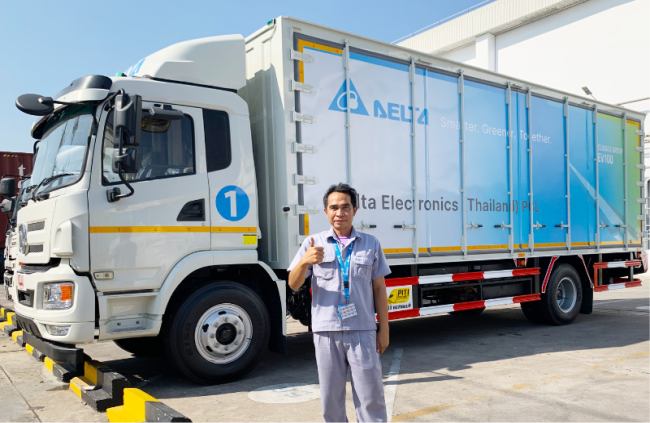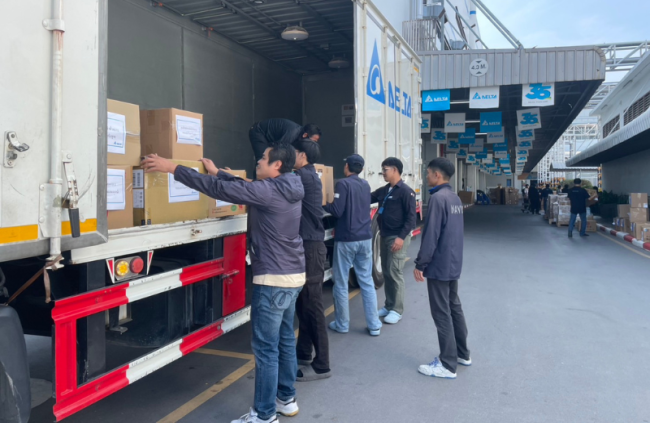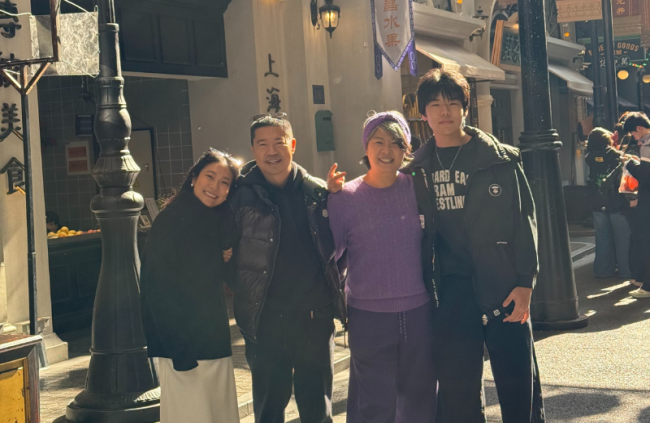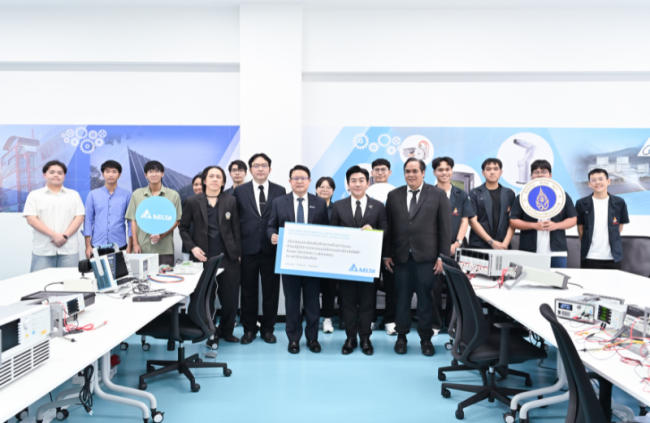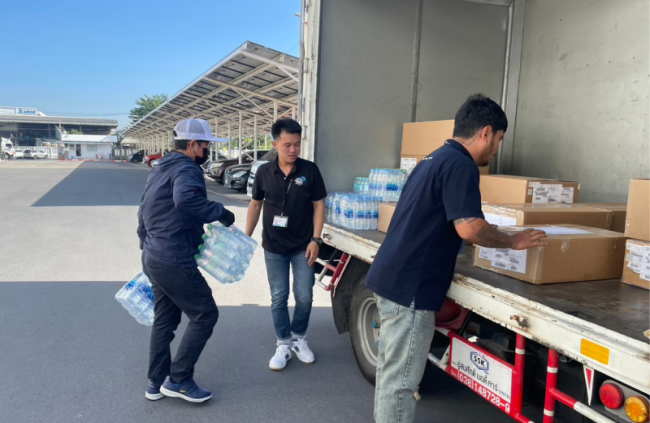Lead with Passion and Empathy: Delta SEA IA Business Director’s Chat on Automation Business with a Human Touch
By David Nakayama - Published July 10, 2023
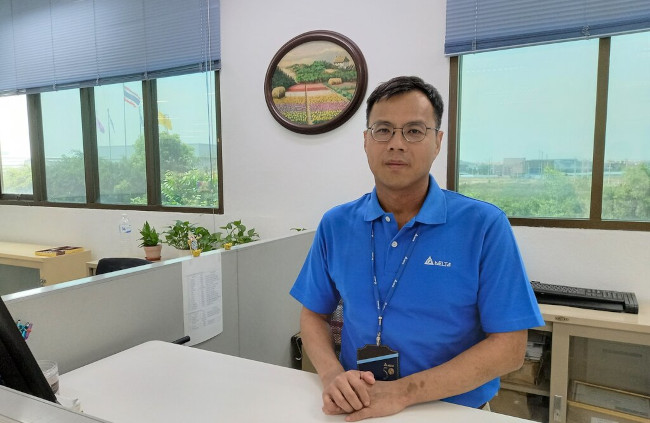 Interview with Mr. Alan Chou, Delta Industrial Automation Regional Business Director
Interview with Mr. Alan Chou, Delta Industrial Automation Regional Business Director
Text by David Nakayama, DET Corp Comms
Photographs by Delta Thailand
Samutprakarn, Thailand, May 26, 2023-For global manufacturers like Delta Thailand, automation is the key to continuous improvement in energy-efficiency and productivity in our changing world. Since 2021, Mr. Alan Chou, Delta Industrial Automation Regional Business Director, has been leading our industrial automation (IA) business growth in Southeast Asia with our local teams.
This month, I was able to get an hour to chat in the office with our talkative and very busy IA leader at the DET office, in his native language Mandarin, on his storied career and the remarkable growth of Delta’s IA business.
Can you tell us about your background and your career journey to your current role as head of Delta’s SEA Industrial Automation (IA) business?
In joined Delta Taiwan back in 2007. Prior to that, I had worked for one year at a government research institute as an R&D engineer dealing with the treatment of radioactive waste material from nuclear power plants. My Delta career started at our Taoyuan Plant with the Industrial Automation Business Group (IABG). My first position was Field Application Engineer (FAE) for Delta’s programmable logic controller (PLC) and servo products.
In 2009, I moved on to Product Marketing where I was involved with the design and specifications of IABG’s new products. We also supported launch and go-to-market for sales worldwide. In 2014, I became a Product Manager at Delta EMEA IA. I spent 4 years based at our headquarters in the Netherlands while covering the entire EMEA region. In 2018, I returned to Taiwan IABG to be Product Marketing Head of our Motor Drive Solution. In 2021, I came to Delta Thailand to be the IABG Sales Director for the Southeast Asia region.
How Delta has leveraged its expertise in power management to develop our own industrial automation products/solutions and what were the key milestones in the IABG development?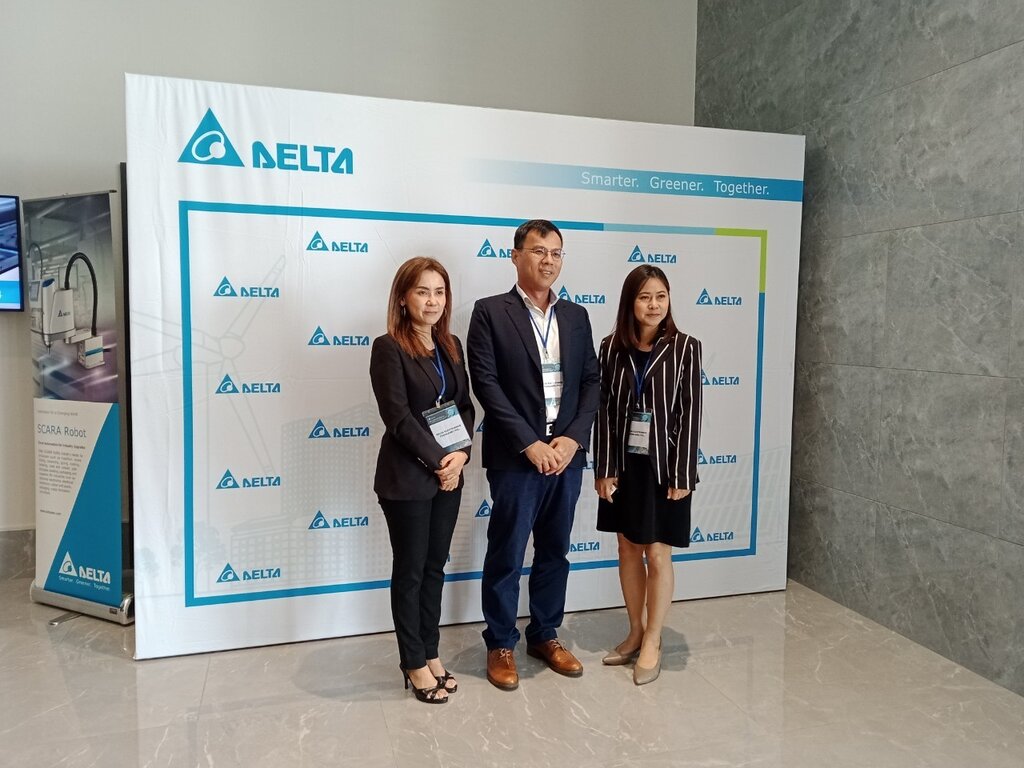
Delta’s IABG was established back in 1995 with the Motor Drive as our first product. Up until 2007, we just did product selling but by 2010 we had begun bundling different products to make systems and then we integrated several systems for solutions.
In 2011, IABG came out with our first solutions for CNC machines and injection molding machines. These solutions combined drives with motor and control. At the same time, IABG’s AMBU can help set up manufacturing equipment by adopting our original electronics controller and control products in the mechanical design with integrated firmware and integrated software.
Why is the IABG business such a key part of Delta’s growth, and what sectors are you focusing on to build Delta’s IA brand business in the SEA region?
Delta has three business categories: Components Automation and Infrastructure. Of these, automation can directly support Delta factory capability and boost our productivity with technology. In addition, building automation is closely related to IA factory automation because it supports efficiency for green building and operations in the factory.
We can leverage our development and implementation experience at Delta factories, to sell solutions to other factories and we can use our automation solutions as an entry point to then introduce other Delta business products and solutions like solar inverters and EV charging by the EISBG.
Today, IABG only accounts for around 10% of Delta’s global revenue but if we look at global megatrends like the aging population, we can clearly see the need for more automation and demand will only increase. Meanwhile, climate change is making energy-saving a must for industry and so IABG can increase our synergy with other BGs and businesses like EIS to implement energy-saving infrastructure solutions in factories.
What advantages does Delta IA have to compete in the SEA region and become a recognized and trusted local brand?
Compared to other competitors, Delta has a lot of offerings and a broad product range to equip our customers with solutions. Other competitors may be very focused on automation but Delta’s portfolio can offer more or less depending on the customer’s requirements.
As we can see, Southeast Asia is rapidly turning into a global manufacturing base with a lot of manufacturing moving down from China to Vietnam, Thailand and Malaysia so it’s a very potential region and market. So, I am confident that with Delta’s broad product and solutions portfolio we can differentiate ourselves from our competitors.
What are your sales and business development strategies for IABG in Southeast Asia?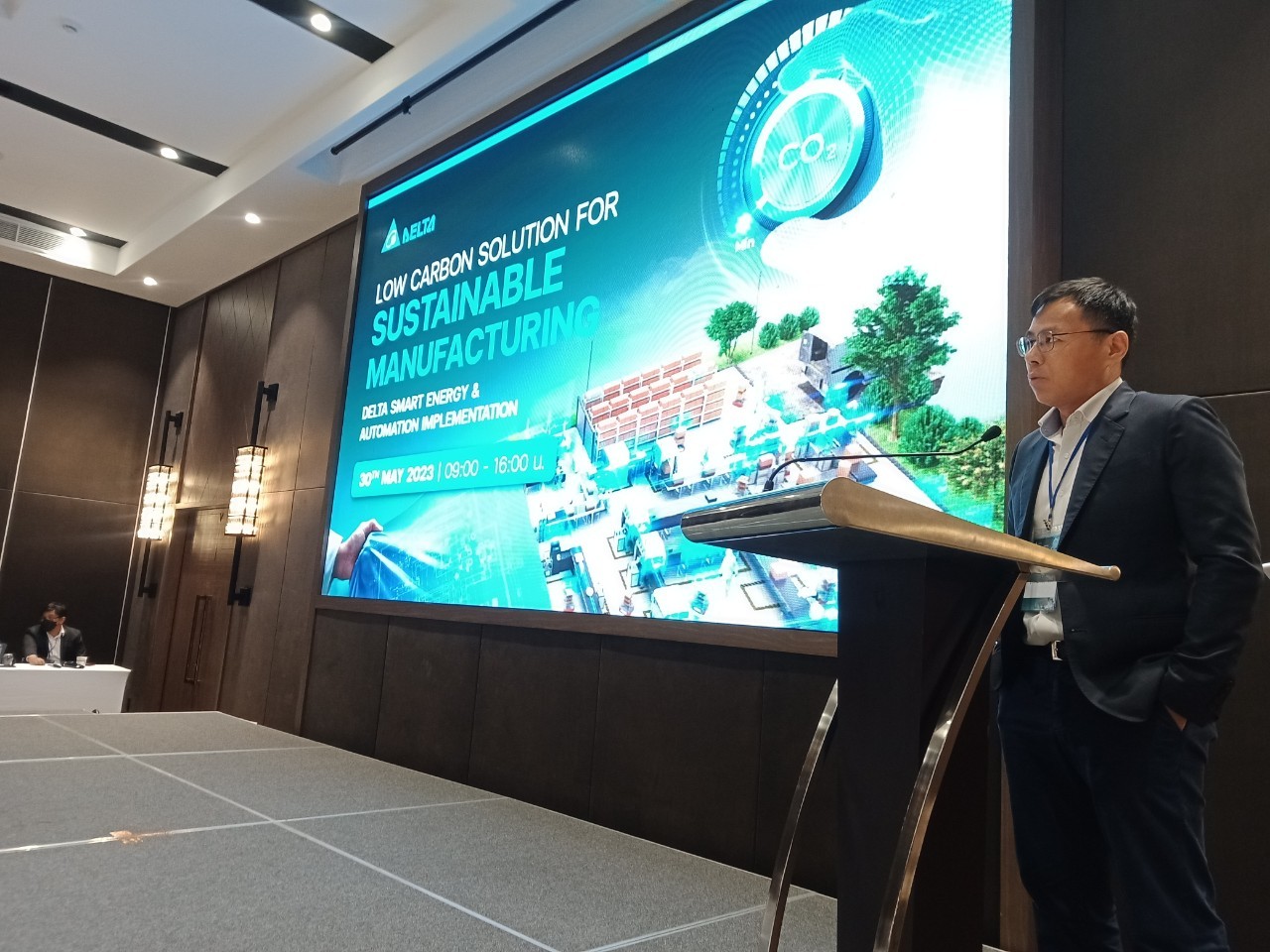
Delta IABG has such a wide range of products, equipment and solutions to cover a diverse array of verticals in the manufacturing sector. However, one sales channel cannot possibly cover all segments so we focus on opening up different domains and working with a number of sales channels. We don’t just have 1-2 sales channels to cover all market segments.
IABG also does direct sales to key account (KA) customers who are mainly end-user electronics brands manufacturing in the region. We can penetrate electronics manufacturing with KA direct sales because we have better domain knowledge than sales distributors.
What are the top priorities for SEA factories looking to implement smart manufacturing, and what are the main steps to take to transform to automated production?
First, need to see and understand each customer vertical to see how to help them boost efficiency or productivity. For example, we can offer consulting services to the electronics manufacturing sector because we understand the production lines and machines used in their factories.
However, we are not as familiar with the F&B production processes so must first start with our area of expertise on energy saving for green buildings. We can make a proposal for green factory solutions like energy-efficient HVAC systems, energy monitoring devices and software or solar rooftops.
From there we can move on to the production line to optimize energy efficiency and then we can implement equipment. If our team doesn’t have the expertise to implement solutions on F&B or chemical production lines, then we can leverage system integrators (SI) from our ecosystem, and they can help us with their know-
how. Finally, we can implement a manufacturing execution system (MES) to improve the factory’s overall management system.
How are you adjusting to working as a Delta Sales leader in Southeast Asia, and do you have any tips for having good work and life abroad?
I came to Thailand a few times before to work on projects as an FAE. However, this is my first time being based in Thailand and working in sales. Before I only had functional jobs and this is the first time I have had my own sales revenue achievement targets, P/L management and new leadership role and responsibilities (R&R). Before I would focus on the product from an engineering viewpoint but now, I need to have a more commercial outlook to understand our customers’ needs. For example, I need to consider payment and credit terms, logistics and service.
I think in Southeast Asia the culture is very casual and people are very friendly. The warm human interactions we enjoy here are very different from my experience in Europe where I found people are more distant. This is a very international and diverse region where people from all kinds of backgrounds work together. It’s also closer to Taiwan so we can easily travel back anytime.
How do you manage your multinational local teams in each country? What are some things you are looking for in your leaders?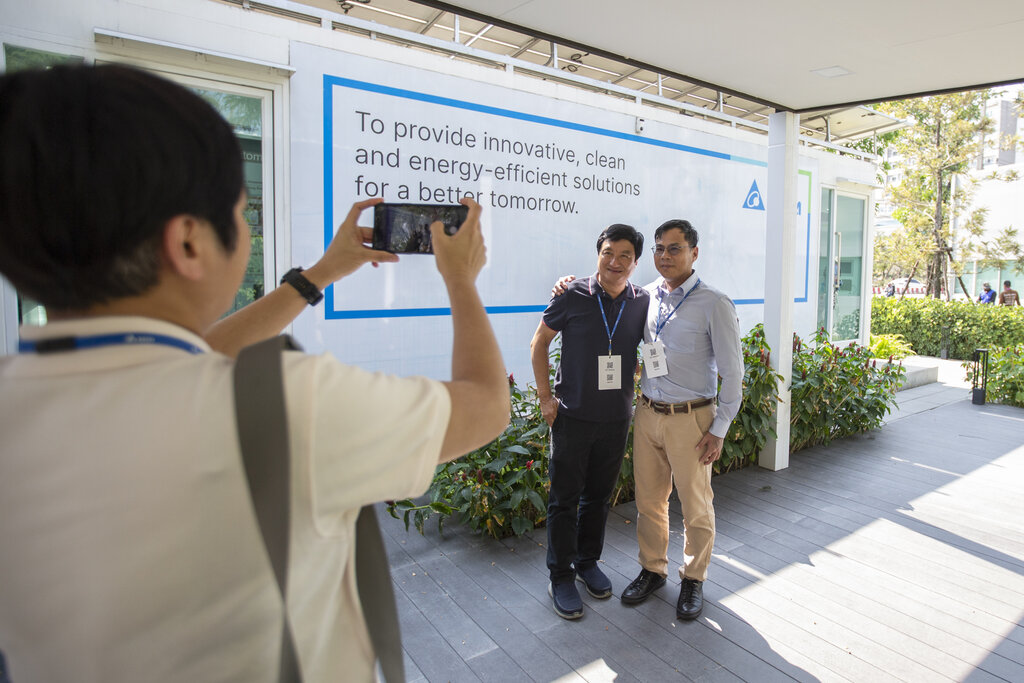 I prioritize teamwork. I don’t need you to be a superstar because everyone has their own advantages and disadvantages. In a team, we all work together to improve our performance. FAE, sales, marketing and administration members all have strengths and weaknesses, and we need open communication to enhance our team performance.
I prioritize teamwork. I don’t need you to be a superstar because everyone has their own advantages and disadvantages. In a team, we all work together to improve our performance. FAE, sales, marketing and administration members all have strengths and weaknesses, and we need open communication to enhance our team performance.
I try to learn about others’ strong points and have lesson-learning together to improve while sharing the benefits with my team. Members from the Philippines, Malaysia and Vietnam also have their own different cultures but overall, our people are open-minded and at work, we can also be good friends. I want to create a caring family atmosphere with my whole team and not make divisions between different countries.
What are some ways you are strengthening the IABG team in Southeast Asia today?
The challenge is that our region is very vast and, in the future, it will be more and more important to Delta’s global growth strategy. Before there was not as much focus put on the SEA region but now everything has changed, and we must rapidly set up the fundamentals for our business growth. I need to consider what we have and what we lack as we build up a platform step-by-step.
Right now, IABG is sending more product managers over from Taiwan who have strong domain knowledge. Sales are more like generalists whereas product managers are vertical specialists with deep domain knowledge, especially in electronics and electrical or (EE) engineering. Our sales can speak deal with our distributors but when working directly with customers we need people who really understand the product features and we need technical experts who know the product to back up.
Our product managers can also use Chinese to communicate efficiently with our BG head office in Taiwan which is a critical factor for KA projects that need a fast response within 24 hours. The corporate side is also encouraging more young talents to expand their experience abroad. So this is good for our local team and for their personal career growth.
How do you balance your career and personal life? What are some things you like to do to de-stress during your off time?
Thailand great place for food and there are so many kinds of international choices available from Thai food to Japanese, Korean or Spanish dining. You can also enjoy all levels from casual street food to luxury restaurants. I feel life is not very stressful here and the tempo of life is a lot slower overall. On weekends we can relax and study Thai or new hobbies like golf.
I always try new challenges and see what I can enjoy in other countries like Thailand, Vietnam or the Philippines. Every time I go to a new country I try to get out and see how the locals enjoy life and what they like to do and also I try to join them. This makes life more exciting and enjoyable.
Finally, is there anything you would like to share with your Delta colleagues around the world?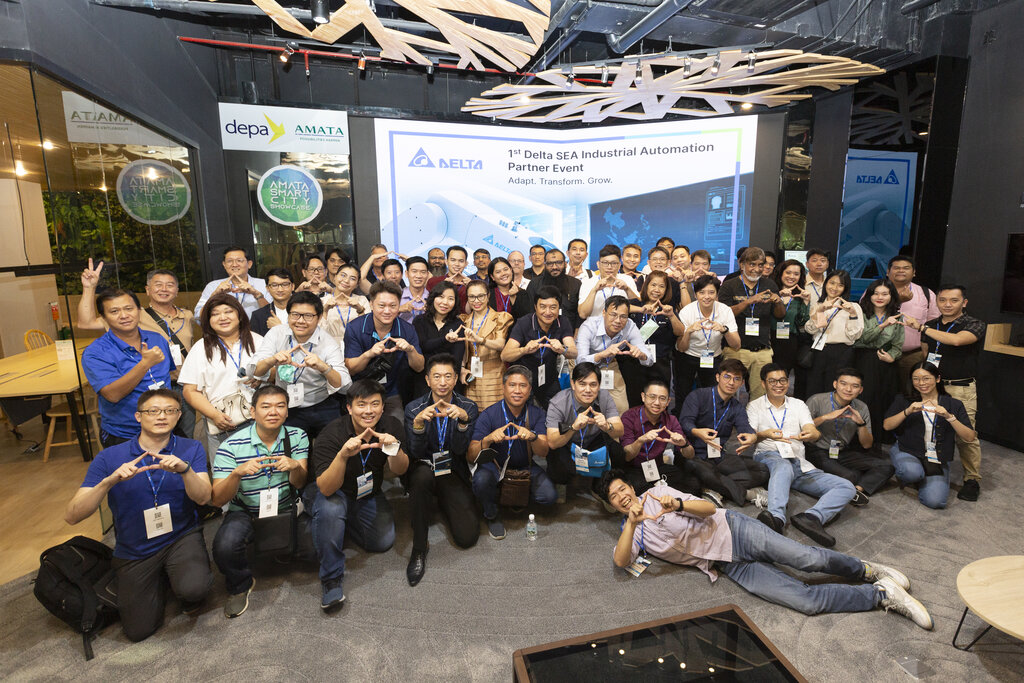 We should all try to be humble and listen to others while having a strong passion for our work. Every day we might meet colleagues or customers in all sorts of roles and with different backgrounds so we shouldn’t only push our own preconceived ideas across, but we should listen with humility.
We should all try to be humble and listen to others while having a strong passion for our work. Every day we might meet colleagues or customers in all sorts of roles and with different backgrounds so we shouldn’t only push our own preconceived ideas across, but we should listen with humility.
Whether you are at work and or at home with your family, it’s important to listen to and understand the whole situation and the viewpoints of everyone involved. Have patience to listen and understand what others are experiencing and you might discover something new or may change your original views. I believe that practicing empathy instead of just paying lip service to the idea will be extremely helpful for building meaningful human relationships in business and in life.
